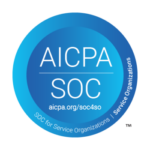How AI in Medical Coding Empowers Coders to Reduce Denials and Improve Revenue

Medical coding is a critical process in healthcare billing and reimbursement. Accurate coding ensures that healthcare providers receive appropriate payment for services rendered. However, denial rates for medical claims remain a significant challenge, leading to revenue loss and administrative burden.
With more than 70,000 ICD-10 codes and more than 10,000 CPT codes there are a near infinite number of combinations, too many for any medical coder to navigate efficiently as denial stack up and claim payment windows closing. The implementation of artificial intelligence (AI) in medical coding, both through fully automated coding and decision support systems, can empower medical coders to efficiently attack and significantly reduce denial rates and improve revenue for healthcare providers.
Understanding Denials and the CERT Program
The Centers for Medicare & Medicaid Services (CMS) developed the Comprehensive Error Rate Testing (CERT) program to estimate improper payment rates for Medicare claims. Improper payments occur when claims are paid but do not meet Medicare requirements. The CERT program categorizes improper payments into various error types, including no documentation, insufficient documentation, medical necessity, incorrect coding, and others.
Identifying Top Error Rates for Denials
The CERT program provides valuable insights into the top error-prone areas in medical coding. By analyzing the top 20 error rates, healthcare providers can target specific claims for review, addressing the areas with the highest risk. For example, the CERT program identified medical necessity errors as a common cause of denials. Lack of documentation to support the medical necessity of a service often leads to payment discrepancies.
Benefits of AI in Medical Coding
Fully Automated Coding: AI-powered medical coding systems can automate the coding process by analyzing clinical documentation and assigning the appropriate codes. These systems leverage natural language processing and machine learning algorithms to interpret medical records accurately. By automating coding, healthcare providers can reduce human error and inconsistencies, resulting in more accurate claims and reduced denial rates.
Decision Support in Coding: AI can assist human coders by providing real-time decision support. Intelligent coding systems, like Aideo’s Gemini AutoCode, can review the documentation and suggest the most suitable codes, ensuring compliance with coding guidelines and reducing the risk of denials. This technology acts as a valuable resource, augmenting human expertise and enhancing coding accuracy and speed.
Reducing Denials with AI
Improved Documentation: AI-powered coding systems can help healthcare providers improve documentation practices. By analyzing the documentation and identifying missing or inadequate information, these systems can prompt physicians to provide additional details to support medical necessity. Complete and accurate documentation significantly reduces the risk of denials.
Enhanced Code Accuracy: AI algorithms can analyze coding patterns and historical data to identify coding errors. By flagging potential coding discrepancies, AI systems can prevent incorrect coding and subsequent denials. Additionally, AI can assist in identifying incorrect sequencing of diagnosis codes, a common cause of medical necessity errors.
Real-Time Auditing: AI can continuously monitor claims and identify potential issues before submission. By performing real-time audits, AI systems can catch coding errors or incomplete documentation, allowing healthcare providers to rectify issues promptly. This proactive approach significantly reduces the likelihood of denials and minimizes the need for retrospective corrections.
Denial rates pose a significant challenge for healthcare providers, leading to revenue loss and administrative burden. However, the integration of AI in medical coding offers promising solutions to empower medical coders with tools to mitigate denials and improve revenue. Through automated coding and decision support systems, AI can enhance documentation practices, improve coding accuracy, and enable real-time auditing. By leveraging AI technology, healthcare providers can complement and streamline the coding process, reduce denials, and ensure proper reimbursement for the services they provide. Embracing collaboration between AI and human medical coders is a proactive step toward maximizing revenue and optimizing healthcare delivery.




